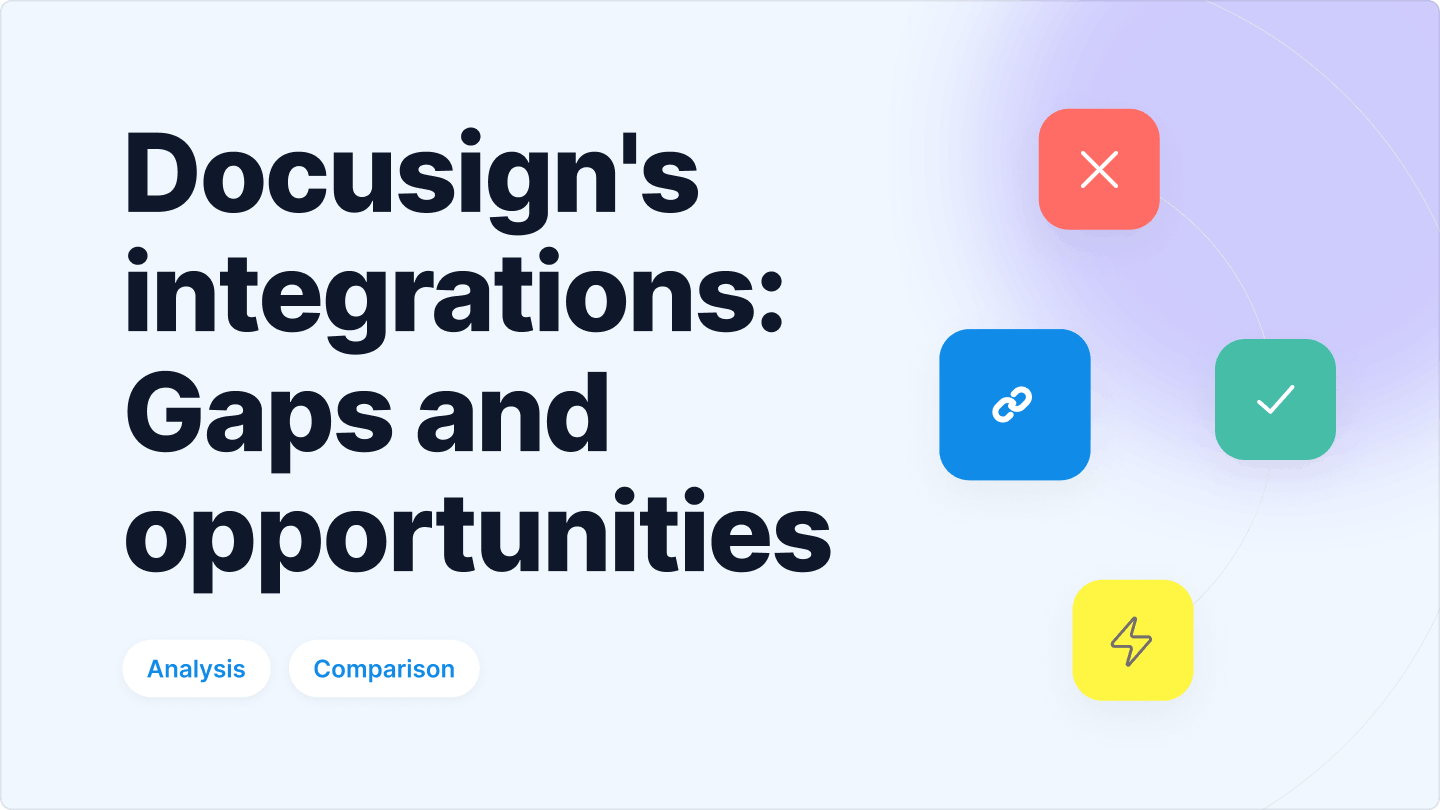Modern businesses are drifting away from the pen-paper loop and collaborating online as the world becomes more connected. This has increased the demand for eSignatures worldwide among businesses looking to simplify workflows and improve efficiency. According to MarketsandMarkets, in 2020, the global digital signature market size reached $2.8 billion and is expected to reach $14.1 billion by 2026.
eSignatures are innately convenient. Be it an individual or a business, anyone who has ever eSigned a document will vouch for its simplicity and ease of use. Businesses of all sizes have started pulling the plug on wet-ink signatures and choosing electronic ones, which calls for implementing laws and regulations governing them. Also, the exponential increase in document transactions with international clients and partners has compelled businesses to stay abreast of eSignature laws worldwide.
The legality of eSignatures
Understanding eSignature laws help you realize their impact on the legality of your contracts when working across international borders. It is also essential to keep in mind that not all countries treat eSignatures and wet-ink signatures equally.
In this blog, we will look at six major countries and how eSignature laws apply within those regions.
eSignature laws in the US 🇺🇸
- Electronic Signatures in Global and National Commerce Act (ESIGN Act)
- The Uniform Electronic Transactions Act (UETA)
A Quick Summary
- In the US, eSignature laws are maintained by both, federal and state governments. As per the federal ESIGN Act, eSignatures are equivalent to handwritten signatures and hold the same weight in legal courts.
- The Uniform Electronic Transactions Act (UETA) gives a detailed picture of eSignature regulations at the state level. 49 states, the District of Columbia, Puerto Rico, and the U.S. Virgin Islands have adopted the UETA.
- Legal notices like property transfers and wills may be excluded from the ESIGN Act and UETA. Also, both the acts only apply to electronic records and signatures related to a transaction.
eSignature laws in the UK 🇬🇧
- Electronic Communications Act 2000
- Electronic Signatures Regulations 2002
- Electronic Identification, Authentication and trust Services (eIDAS)
A Quick Summary
- Electronic signature laws in the United Kingdom fall under the Electronic Communications Act 2000 (ECA 2000), and the Electronic Signatures Regulations 2002. Under ECA 2000, everything related to contracts and online transactions are governed. Meanwhile, Electronic Signatures Regulations define eSignatures as legally binding. Except for a few cases, eSignatures are acceptable in the U.K. and can be relied upon for use in business transactions.
- The UK eIDAS Regulations set out rules for UK trust services, and established a legal framework for the provision and effect of electronic signatures, electronic seals, electronic time stamps, electronic documents, electronic registered delivery services and certificate services for website authentication.
eSignature laws in India 🇮🇳
- Information Technology Agreement (ITA)
- Indian Contract Act (ICA)
- Electronic Signature or Electronic Authentication Technique and Procedure Rules (ESEATPR)
A Quick Summary
These laws mentioned above form the basis for:
- What are officially recognized as ‘electronic signatures’ in India
- Conditions all contracts should meet, including contracts involving an electronic signature that doesn’t meet recognized requirements listed under the ITA
- Whether stamp duty is applicable on a particular transaction entered electronically
The ITA states that a contract can’t be forcibly denied just because it was conducted electronically, provided the contract fulfils all essential elements of a valid contract like entered into parties competent for contract, entered into parties as a free will, is a mutual consideration between parties, and doesn’t involve acts forbidden by law.
Given below are the essential elements of a valid contract listed in Section 10 of the ICA:
- It is entered into by parties competent to contract;
- It is entered into by parties out of their free will;
- It provides for a mutual consideration between parties;
- It doesn’t involve doing any act forbidden by law.
Note: Under Indian law, contracts between private parties don’t require a signature for validity.
eSignature laws in South Africa 🇿🇦
A Quick Summary
- eSignatures in South Africa are governed under the Electronic Communications and Transactions Act (ECTA). The law in South Africa adheres to the EU directive on eSignatures.
- Section 13 (1) states that in cases where a signature is required, and the law doesn’t specify the type of signature, the requirement is only met when an advanced electronic signature is used.
- Subject to 13 (1), Section 13(2) of the Electronic Communications and Transactions Act (ECTA) states that contracts, if not electronic, can’t be rejected. However, these contracts might have to be backed by additional evidence in court.
- Companies in South Africa are permitted to use eSignatures for signing and are given equal status as handwritten signatures. Electronic signature laws in South Africa don’t mandate signing contracts to state them as valid.
eSignature laws in Canada 🇨🇦
- Personal Information Protection and Electronic Documents Act (PIPEDA)
- The Uniform Electronic Commerce Act (UECA)
A Quick Summary
- Electronic signatures are legally permissible in Canada and are recognized at a federal level by the Personal Information Protection and Electronic Documents Act (‘PIPEDA’).
- All the Canadian provinces and territories other than Quebec comply with the Uniform Electronic Commerce Act (UECA) of 1999.
- UECA gave electronic signatures the same legal status as traditional handwritten signatures. As stated in the UECA guide, the act does not set any technical standard for producing a valid signature. As a result, e-signatures can be constituted in several ways unless rules state otherwise.
- On the federal level, the use of eSignatures was endorsed by (PIPEDA) which came into force in 2004. According to the law, every type of eSignature holds similar significance to a physical one and is fully court-admissible.
- Each company operating in the Canadian market can take the liberty to use both digital and paper documents, as the law recognizes them as equally valid. However, PIPEDA reiterates specific requirements for an electronic signature to be deemed secure:
- Unique and distinctive
- Created under the signer’s sole control
- Can confirm the identity of the signer
- Protected by technology that can determine changes made to the document
Wrapping up
Though businesses can’t deny the effectiveness of electronic signatures, the lack of understanding about its legality holds them back. But, the good news is that eSignatures are 100% secure and legal, given that the eSignature vendor complies with the region's laws and regulations.
Signeasy comes with enterprise-grade security and compliance practices, including GDPR, HIPAA, and SOC 2, and also adheres to international acts and regulations, like ESIGN and eIDAS.
Signeasy is an easy-to-use, modern, and secure eSignature platform for businesses. Start a free 14-day business trial for 14-days. Visit www.signeasy.com/signup












